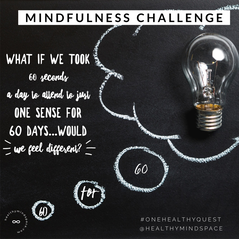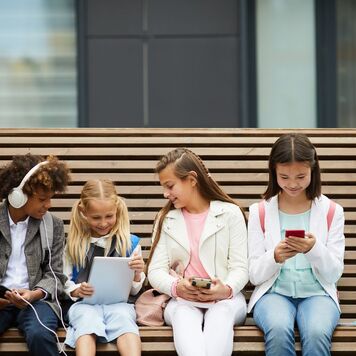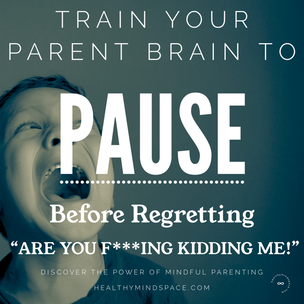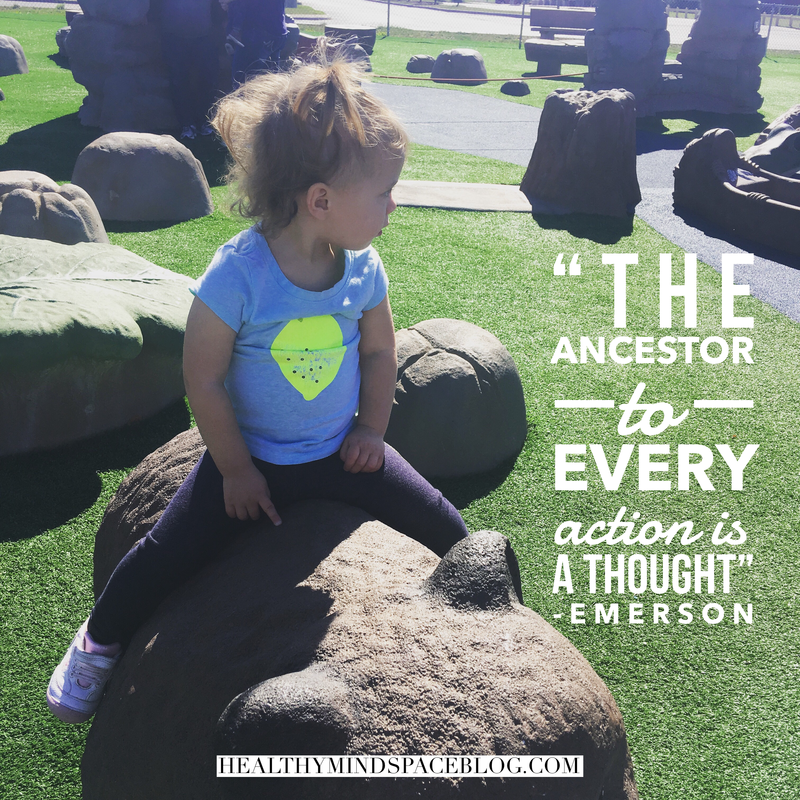|
Research shows that regular, intentional mindfulness practice - even just a few minutes a day - can increase attention control, emotional regulation, presence and compassion. Grey matter increases in specific areas of the brain (supporting stronger neural connectivity in areas that are responsible for memory, learning, problem solving and controlling emotions).
Research shows that increased screen time, which keeps our brains in the hypnotic state receiving a massive surge of dopamine (the pleasure transmitter), can decrease attention control and presence. So although one may seem to be laser focused on one thing - technology - we are actually receiving many cues all at once leading to the practice of sliding attention from one thing to another at a rapid rate. This can be beneficial, but only when paired with practice and the development of focusing on one thing at a time. With technology engagement such as this, research has shown that white matter decreases in the brain; an area key to language development, literacy and cognitive skills. With increased screen time use in households today, as we try to navigate the new norm with the COVID-19 global pandemic, it is more important than ever to ensure there is a balance between online and offline experiences. To balance the increased connectivity through technology, should we consider adding - or increasing - our current intentional mindfulness practice? The answer is an easy, yet astounding YES. Stop and focus on your breath or the sounds around you a couple of times a day. Intentionally focus your mind on repeating words (a mantra) that are meaningful to you. Explore the outdoors, without distraction or technology. Exercise. Support an under-stimulated mind at home. Let the minds wander. Let yourself - your kids - be "bored." "Boredom is the space in which creativity and imagination happen," says Pediatrician Michael Rich, Director of the Center on Media and Child Health at Boston's Children's Hospital. To learn more about the power of mindfulness and the importance of starting with YOU, check out the online course, Mindful Parenting: Keeping it Simple or Launching a Mindful Classroom: It Starts with YOU. Use the code: FAMILY to receive 50% now through May 15th in response to the COVID-19 Global Pandemic. We are in this together. Reference: https://hms.harvard.edu/news/screen-time-brain
0 Comments
Dear Parents/Caretakers,
I am going to keep this simple. I am WITH you on the challenges of working from home and being with your beloved kiddos all day, every day. There are so many moments to cherish during this unprecedented time together, but there are many moments where you might just lose it. To help maintain the sanity that you do have left, it's time to add some time for YOU into the day. 3-5 minutes minimum. Give yourself time to just BE. Just sit and focus on your breathing, listen to the birds, watch the rain. Just do one thing and do it well. That will support the brains response system to develop more control. That way the oh-so-powerful PAUSE between a stimulus and response will shine more often! How the Mindful PAUSE works… Stimulus - (NO PAUSE) - Response (No/Limited Mindfulness Support) Stimulus: "Ellie, please turn off your Kindle," says mom. Response: Ellie doesn't hear mom’s request. Stimulus: Ellie doesn't hear mom's request. (Of which research supports, isn't her fault since her dopamine is flowing at a high level.) Response: "Ellie! Are you f***ing kidding me? I said get off that Kindle right now!!" And then the two are in a heightened level of stress as a battle ensues. Stimulus - PAUSE - Response (Mindfulness Support) Stimulus: "Ellie, please turn off your Kindle," says mom. Response: Ellie doesn't hear mom’s request. Stimulus: Ellie doesn't hear mom's request. (Of which research supports, isn't her fault since her dopamine is flowing at a high level.) PAUSSSSSSSSE (options are contemplated with clarity) Response: Mom approaches Ellie and makes physical contact to gain her attention. Ellie makes eye contact with Mom to listen. Mom offers a one minute warning for shut down. Ellie shuts the technology down. This PAUSE is a key benefit that comes from regular, intentional mindfulness practice. Research has shown that mindfulness practice can reduce the amount of gray matter in the amygdala, which plays a major role in our levels of stress. It has also been proven to reduce the levels of cortisol, also associated with decreased stress levels. So when a mindfulness practitioner is stimulated by something challenging, the brain is more likely to naturally pause to consider response options. This pause can ultimately lead to a more controlled, positive outcome for all. To learn more about the power of mindfulness and the importance of starting with YOU, check out the online course, Mindful Parenting: Keeping it Simple or Launching a Mindful Classroom: It Starts with YOU. Use the code: FAMILY to receive 50% now through May 15th in response to the Global Pandemic. We are in this together. “The mind is just like a muscle - the more you exercise it, the stronger it gets and the more it can expand.” -Idowu Koyenikan 60 Seconds a Day for 60 Days...  What: Mindfulness Challenge When: 60 seconds of mindfulness practice a day for 60 consecutive days Share: #onemindfulquest Why? Our elementary school set out this year to develop our understanding and practice of mindfulness. We are discovering the power of mindfulness and we want to spread the love for it. Join us in ONE MINDFUL QUEST. As a New York State public school, our state assessments begin on April 2. What if we could potentially strengthen the prefrontal cortex, the area of the brain associated with higher order brain functions like awareness, concentration and decision-making and shrink the area (the amygdala) associated with fear and emotion and initiating the body’s response to stress? We have the potential to do this for ourselves and our students by committing to a minimum of 60 seconds a day, for 60 days. Research shows how the brain matter can physically change - that rewiring can occur - with 8 weeks of consistent mindfulness practice. Is more than a minute of mindfulness practice welcome, absolutely. But in an attempt to set a reasonable, attainable goal for groups, we are starting with a goal of 60 seconds. School, athletic teams, families...join us as we use our mind to change our brain, ultimately circling back to benefit the mind creating an infinite path of change. Our school is starting February 1, 2019 and wrapping up the challenge on April 1, 2019. You can join us, or start your own 60 day challenge! How? Focus your attention on one thing, such as a sense or the breath. Keep it simple. We aren’t talking about full lessons on mindfulness but rather mindful minutes. Be strategic when incorporating the practice. Try not to make it one more thing to do but consider it as a way to arrive to a particular lesson or activity. For example, “let’s take a minute and tune into any one sound that is around us. Whatever sound your mind gravitates to, keep your attention on that specific sound. This could be a fan, the clock, a timer, a chime or bell... Wonderful, now we are ready to begin learning about ratios.” *Check out the 60 Seconds of Mindfulness Toolbox of Ideas on the Resource Page. As you participate, notice how you feel before, during and after the intentional mindful minutes. How are you feeling as you go through your day, week, month? Share moments and/or feelings on social media using the hashtag #onemindfulquest and be sure to tag us on FB/IG @ahealthymindspace or Twitter @christylynnHMS. Let’s do this, 60 seconds at a time! xoxo, Christy Lynn © Healthy Mind Space and contributors 2019 |
the blog space
I'm obsessed. This is fabulous. LOVE that you are doing this. The new way of being a student forces us to think outside the box and approach how we teach more dynamically. ~Derek, Father of 2 and Elementary School Principal
Author
Just a girl with a dream to collectively build a healthy mind space for children, while creating a healthier mind space for ourselves. Archives
June 2022
Categories
All
Copyright Healthy Mind Space 2019
|
Healthy Mind Space
- Home
- About
- Coaching for K-4 Students
- Resources
-
Register for Workshops
- Mindfulness Based Interventions PreK-5 Educator Workshop
- Mindfulness Based Interventions & MTSS on August 23, 2022
- It Starts With YOU: Mindfulness Coaching for Educators (Team)
- Yoga + Mindfulness for the Preschool Classroom >
- On-Site Staff Workshop: Launching a Mindful Classroom
- Kids Yoga: One Class Registration >
- Women’s Athletic Tank
- Women’s Casual Top
- Contact
|
Healthy Mind Space offers mindfulness coaching and workshops to professional educators, preschools & childcare centers, and families throughout the Rochester, NY area. By practicing mindfulness in our everyday lives, and through intentional interactions in our classrooms, I believe we can help kids develop a greater capacity for kindness, compassion, positivity, self-confidence and the opportunity to achieve their full potential. |





 RSS Feed
RSS Feed

